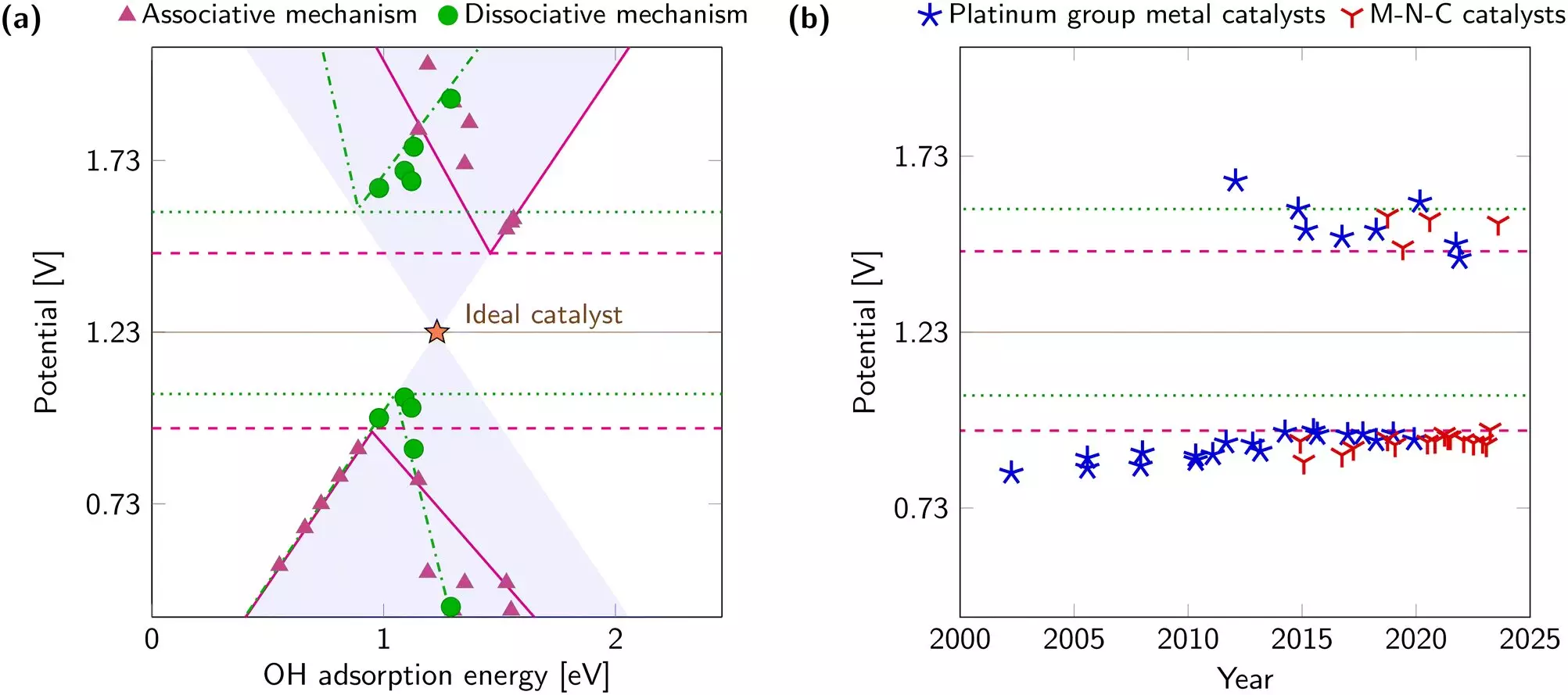In a groundbreaking study published in ACS Catalysis Science and Technology, researchers from the Universities of Tartu and Copenhagen have proposed a new approach to revolutionize oxygen electrocatalysis. This innovative concept, known as geometry-adaptive electrocatalysis, aims to overcome long-standing limitations in this field and significantly enhance the efficiency of energy conversion and storage technologies.
Oxygen electrocatalysis plays a crucial role in various electrochemical energy conversion and storage systems, such as water splitting, fuel cells, and metal-air batteries. However, the reactions involved in oxygen electrocatalysis, including oxygen evolution and reduction reactions, have high activation energies due to the breaking and forming of multiple chemical bonds. This poses a significant challenge in finding catalysts that can effectively lower these energy barriers and accelerate the reactions.
The research team has proposed a novel paradigm for catalyst design by introducing the concept of geometry-adaptive electrocatalysis. This approach involves using catalysts that can dynamically adjust their geometry during a reaction, thus bypassing the theoretical limitations that have hindered progress in oxygen electrocatalysis for decades. By breaking free from traditional constraints, this innovative method has the potential to revolutionize the field of oxygen electrocatalysis and pave the way for a more efficient hydrogen economy.
According to Ritums Cepitis, the principal author of the study, the proposed concept of geometry-adaptive electrocatalysis could double the efficiency of energy conversion and storage technologies. Dr. V. Ivaništšev, who developed the idea with Prof. J. Rossmeisl, believes that ideal catalysis is now within reach thanks to this innovative approach. As the research team prepares to transition from modeling to laboratory work, Associate Professor Nadežda Kongi is optimistic about the promising advancements that lie ahead. The journey towards implementing this new approach will demand great creativity, but the potential benefits for the field of oxygen electrocatalysis are immense.
The future of oxygen electrocatalysis looks brighter than ever with the introduction of geometry-adaptive electrocatalysis. This game-changing approach has the potential to transform energy conversion and storage technologies, unlock new possibilities for sustainable energy solutions, and propel us towards a more efficient and environmentally friendly hydrogen economy.



Leave a Reply